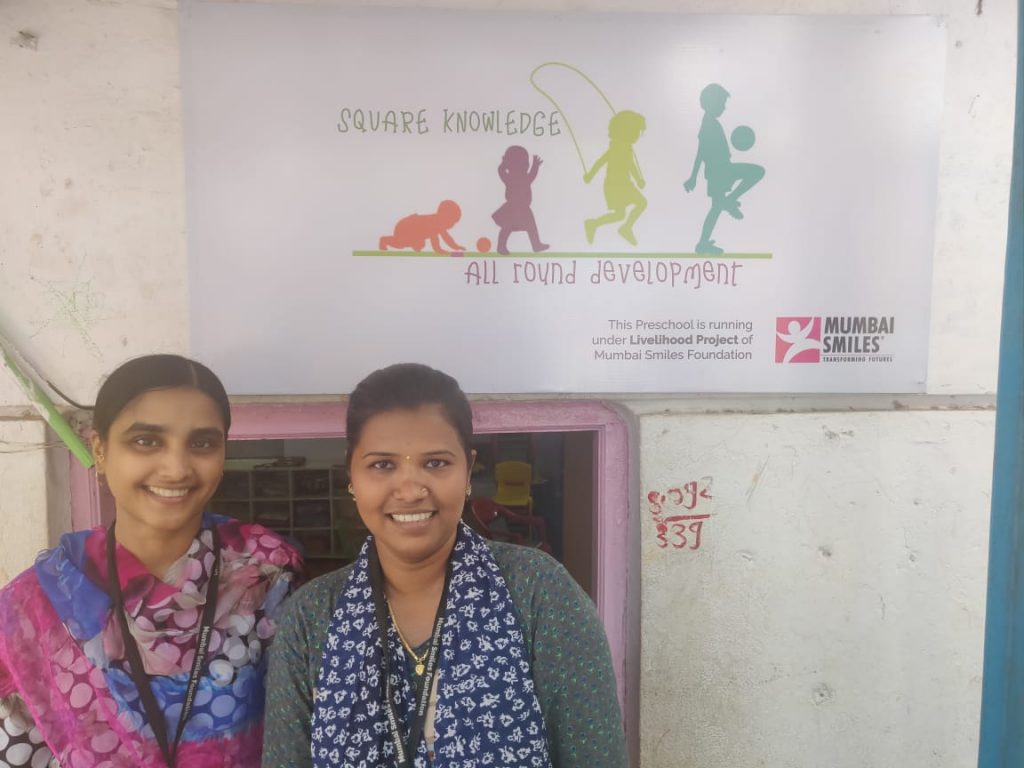Blog
Empowering children and teachers through the preschool centres
Mumbai Smiles is working towards changing the lives of children and teachers from Mumbai slums
31st May
Socioeconomic conditions are directly proportional to how Mumbai thrives. If there is money, the world is a playground. However, if a family struggles to find their next meal, the problem only manifolds. Lack of stable income also means lack to proper public healthcare and education. And this is what millions of children in Mumbai lack. Keeping this in mind, Mumbai Smiles Foundation set up 30 preschools across the slums of Marol, Sangharsh Nagar, KKhairani Road, Powai, Vikhroli, and Aarey Colony.
In 2018-19, Mumbai Smiles Foundation converted 10 preschools in Marol Pipeline, Sangharsh Nagar, Subash Nagar, and Garib Nagar in Powai into the Foundation’s Livelihood Preschool project. Riding on the success of the previous financial year, this year, nine more preschools – this time only in Powai – will be converted into setups for the Livelihood Preschool Project.
Last year, Mumbai Smiles had 10 livelihood centres being run. This year those 10 Livelihood centres will be supported by Mumbai Smiles only for nutrition and training. For the nine additional centres that are being set-up, Mumbai Smiles will provide nutrition, rent, and training – much like it did for the 10 centres last year.
The rationale behind the project is to make teachers self-sufficient, and to provide children with proper education and nourishment. The centres are open the year round (even during summer), so children don’t have to resort to begging on the streets or earning for their families. During holidays, the schools have activities for the children to participate.
This project provides children (below 6 years of age) an opportunity for cultivating healthy habits through education for better future. The project also builds the capacities of Teachers and Assistants in skills required to run the preschools independently i.e. accounting, communication, documentation, etc.
Currently, the project has impacted the lives of 19 teachers, 19 assistants, 5 self-help groups comprising 58 women, and 665 children.







